Politics
Eyes in the Sky: Europe Doubles Down on Satellite Data to Safeguard the Future

In a decisive stride toward bolstering European resilience and crisis readiness, the EU Council today adopted groundbreaking conclusions that place Earth observation and satellite data at the center of civil protection and crisis management across the Union. Behind the closed doors of Brussels, amid mounting environmental disasters, geopolitical instability, and an accelerating climate crisis, ministers made clear: Europe’s security will be safeguarded, in part, from space.
“Space technology is becoming an important pillar of Europe’s security,” said Michał Baranowski, Undersecretary of State at Poland’s Ministry of Economic Development and Technology. “Ensuring real-time, secure, and reliable access to satellite data is essential.”
Baranowski’s words echo throughout a document that might well shape the continent’s technological destiny. The Council’s conclusions call for the full harnessing of Earth observation constellations like Copernicus, blending data from public, private, and commercial sources. This united satellite front, bolstered by artificial intelligence and cyber-secure infrastructures, is envisioned as the keystone of Europe’s response to natural disasters, pandemics, migration flows, wildfires, pollution, and other cascading crises.
Space Data: Europe’s Second Nervous System
Earth observation satellites orbiting silently above Europe now hold the key to anticipating and managing tomorrow’s disasters. From tracking wildfire paths in southern France to predicting crop failure in Romania, or detecting early signs of flooding along the Rhine, these “eyes in the sky” offer a near-infinite stream of high-resolution, real-time data.
Yet, quantity is not enough. The Council’s message is unequivocal: Europe must process better, act faster, and cooperate deeper. This means not just gathering data—but turning it into decisions. To that end, the integration of artificial intelligence becomes indispensable. AI will be tasked with filtering the ocean of satellite input, detecting anomalies invisible to the human eye, and feeding rapid-response systems capable of guiding both national authorities and first responders.
Crisis Prediction in the Age of AI
The Council’s conclusions elevate AI from a technological novelty to a strategic necessity. When woven into satellite-based systems, AI can decipher environmental shifts, model cascading crisis scenarios, and generate predictive alerts. From land degradation and water scarcity to viral outbreaks and geopolitical hotspots, the ability to forecast is no longer science fiction—it is emerging science policy.
But this newfound power demands responsibility. The document calls for full adherence to Europe’s evolving AI regulatory framework, including the AI Act, to ensure that decisions impacting lives are explainable, trustworthy, and secure.
A Fortress in Orbit
As Earth becomes more vulnerable, so do the systems watching over it. Today’s conclusions underscore the importance of protecting satellite data and infrastructure from a rising tide of cyber threats. This is no abstract concern. European and international intelligence agencies have long warned of espionage, sabotage, and cyber intrusions targeting space-based assets.
In response, the Council recommends strong encryption, continuous monitoring, and coordination across national and European cybersecurity bodies to shield the digital lifeblood of satellite operations.
A Whole-of-Europe Approach
The Council’s strategy is more than a policy blueprint—it is a call for union-wide synergy. It urges integration of all existing and future satellite systems, harmonization of data standards, and open cooperation between governments, academia, and industry. Small and medium enterprises (SMEs), often the innovation engines of Europe, are expected to play a pivotal role in developing tools and applications that make satellite data actionable on the ground.
This forward-leaning approach builds upon a series of landmark Council decisions over the past four years—from the 2021 “New Space for People” resolution to last year’s evaluation of the EU Space Programme. Each milestone has added gravity to Europe’s space ambitions. Now, with these 2025 conclusions, the EU crosses a threshold: from recognizing the promise of space, to relying on it for continental security and survival.
The Horizon Ahead
As climate stress multiplies and crises compound, the Council’s vision is clear: Earth observation satellites are not just instruments of science, but instruments of sovereignty. The ability to foresee, react, and adapt to threats—whether meteorological or geopolitical—depends on Europe’s command of the data flowing from its orbital fleet.
“By fostering collaboration,” Baranowski said, “we can create the conditions for stronger security and technological leadership.”
From the command centers of Paris and Warsaw to innovation labs in Tallinn and Lisbon, Europe now faces the task of turning satellite intelligence into real-world action—at the speed of crisis. The sky may no longer be the limit. For Europe, it may be the last line of defense.
Council adopts conclusions on the use of satellite data, in particular from Earth Observation constellations, for civil protection and crisis management.
Source link
Politics
EU changes protection status of wolves in Europe

DISCLAIMER OPINIONS: The opinions of the authors or reproduced in the articles are the ones of those stating them and it is their own responsibility. Should you find any incorrections you can always contact the newsdesk to seek a correction or right of replay.
DISCLAIMER TRANSLATIONS: All articles in this site are published in English. The translated versions are done through an automated process known as neural translations. If in doubt, always refer to the original article. Thank you for understanding.
DISCLAIMER PHOTOS: We mostly used photos images that are readily available online, from free sources, or from the people promoting the news. If by any chance it happens that we have used one of your copyrighted photos, please do not hesitate to contact us and we will take it down without question. We do not make profits as this is a not for profit project to give voice to the voiceless while giving them a platform to be informed also of general news, and it is completely free.
Politics
Commission adopts Ocean Pact to protect marine life and strengthen blue economy
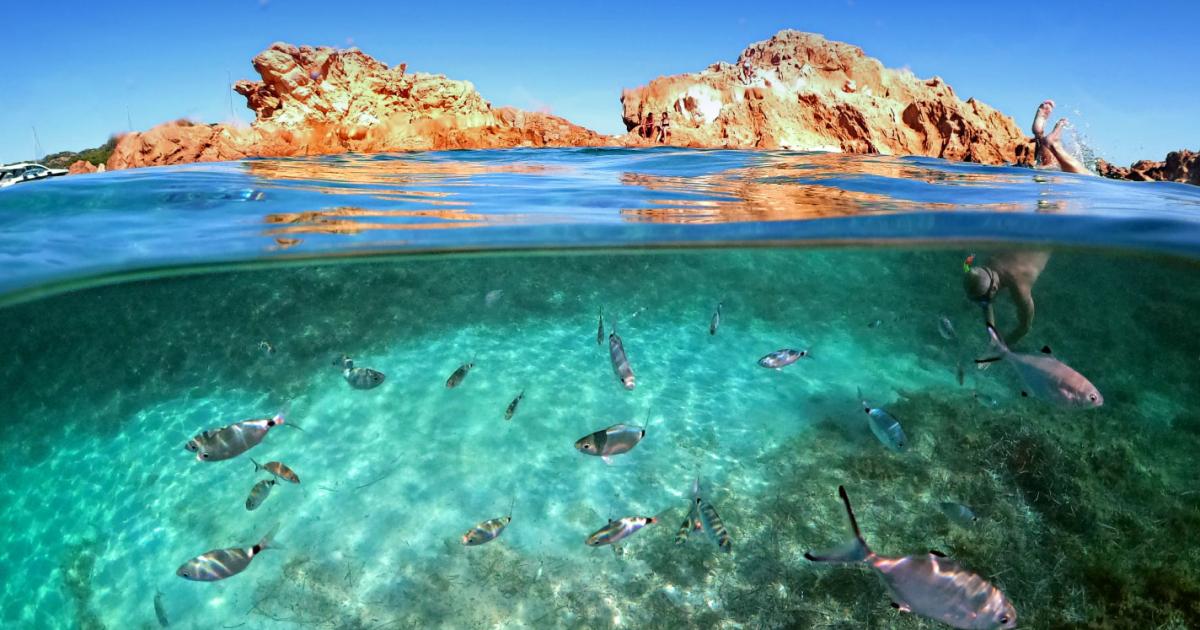


DISCLAIMER: Information and opinions reproduced in the articles are the ones of those stating them and it is their own responsibility. Publication in The European Times does not automatically means endorsement of the view, but the right to express it.
DISCLAIMER TRANSLATIONS: All articles in this site are published in English. The translated versions are done through an automated process known as neural translations. If in doubt, always refer to the original article. Thank you for understanding.

– Advertisement –
– Advertisement –
The ocean shapes our economies, our food systems, even the air we breathe. To better protect our ocean, the Commission has adopted a European Ocean Pact, which will help to promote a thriving blue economy and support the well-being of people living in coastal areas.
This Ocean Pact brings together EU ocean policies under one single and coordinated framework. It will do so through a collaborative approach between EU countries, regions, and stakeholders, including fishers, innovators, investors, scientists, and civil society. Six priority areas for action will define this work, namely
- protecting and restoring ocean health by supporting EU countries in their efforts to restore degraded coastal marine habitats
- boosting the competitiveness of the EU sustainable blue economy including by strengthening the EU’s maritime industry and by introducing a Blue Generational Renewal Strategy, to foster access to young professionals in marine research, ocean tech, and sustainable fisheries
- supporting coastal and island communities, and outermost regions by presenting new or updated strategies for these regions and communities
- enhancing maritime security and defence by strengthening EU coast guard cooperation and maritime border security
- advancing ocean research, knowledge, skills and innovation by proposing an ambitious EU Ocean Observation Initiative
- strengthening EU ocean diplomacy and international ocean governance by stepping up its fight against illegal, unreported and unregulated fishing
The European Ocean Pact will be complemented by an ocean act by 2027, which will help to ensure the implementation of the priorities of the pact. An EU Ocean Pact dashboard will be used to track progress.
For more information
Press release: Commission adopts European Ocean Pact for a healthy ocean, a competitive blue economy and thriving coastal communities
More information about the European Ocean Pact
Source link
More from the author
– EXCLUSIVE CONTENT –
Politics
The European Union and the Republic of Moldova confirm their strong partnership at the 9th EU-Moldova Association Council meeting
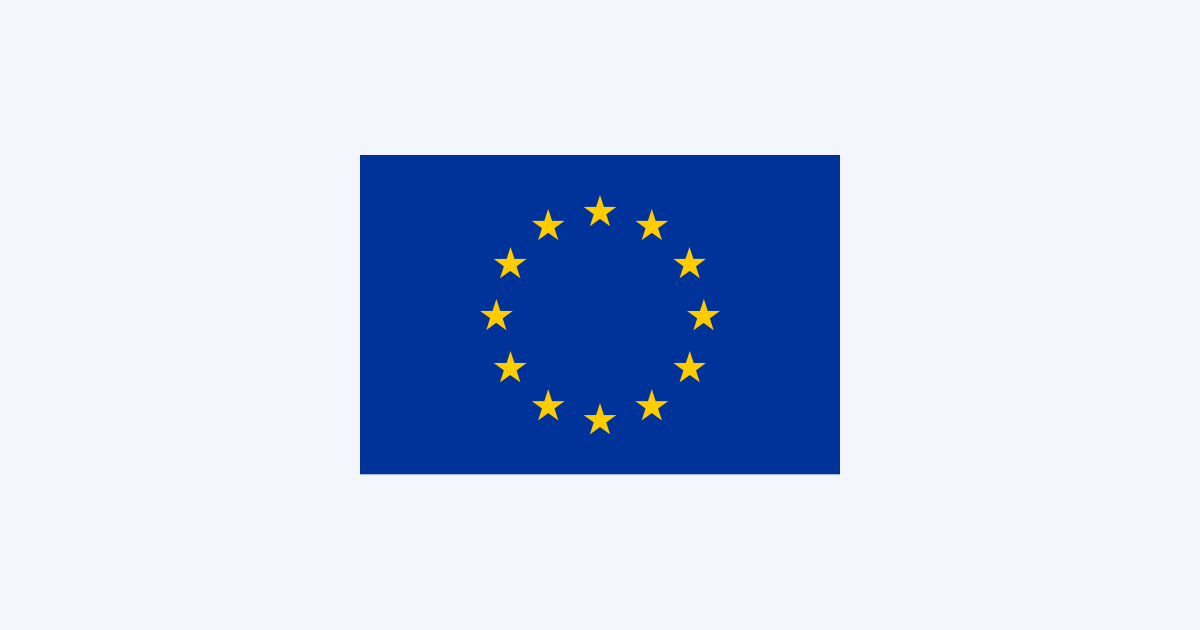

© FRVS+MPCP 2022. The European Times® News is registered as an EU Trademark. All rights reserved. The European Times® and the logo of The European Times® are EU trademarks registered by FRVS+MPCP.
Members/Partners of

About Us
Popular Category
DISCLAIMER OPINIONS: The opinions of the authors or reproduced in the articles are the ones of those stating them and it is their own responsibility. Should you find any incorrections you can always contact the newsdesk to seek a correction or right of replay.
DISCLAIMER TRANSLATIONS: All articles in this site are published in English. The translated versions are done through an automated process known as neural translations. If in doubt, always refer to the original article. Thank you for understanding.
DISCLAIMER PHOTOS: We mostly used photos images that are readily available online, from free sources, or from the people promoting the news. If by any chance it happens that we have used one of your copyrighted photos, please do not hesitate to contact us and we will take it down without question. We do not make profits as this is a not for profit project to give voice to the voiceless while giving them a platform to be informed also of general news, and it is completely free.
Editor Picks
-
EU & the World4 days ago
Aurora Borealis Forecast: Where & When to See the Northern Lights Tonight
-

 Sports6 days ago
Sports6 days agoChampions League Final 2024-2025: PSG-Inter, official lineups
-
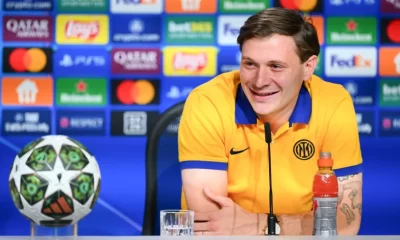
 Sports7 days ago
Sports7 days agoPSG-Inter, Nicolò Barella jokes about Gianluigi Donnarumma
-

 EU & the World5 days ago
EU & the World5 days agoRihanna’s Parents: About Her Late Dad Ronald Fenty & Mom Monica Braithwaite
-
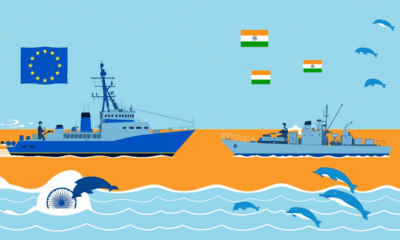
 Politics6 days ago
Politics6 days agoEU and India Forge Deeper Maritime Ties with Historic Joint Naval Exercise in the Indian Ocean
-
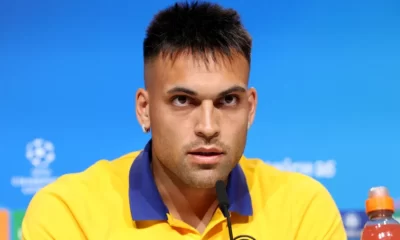
 Sports7 days ago
Sports7 days agoPSG-Inter, Lautaro Martinez unveils recipe for finals
-

 Sports5 days ago
Sports5 days agoOfficial: Damien Comolli new general manager of Juventus.
-
Travel7 days ago
France saw record night train passengers in 2024, but can it keep up with booming demand?








